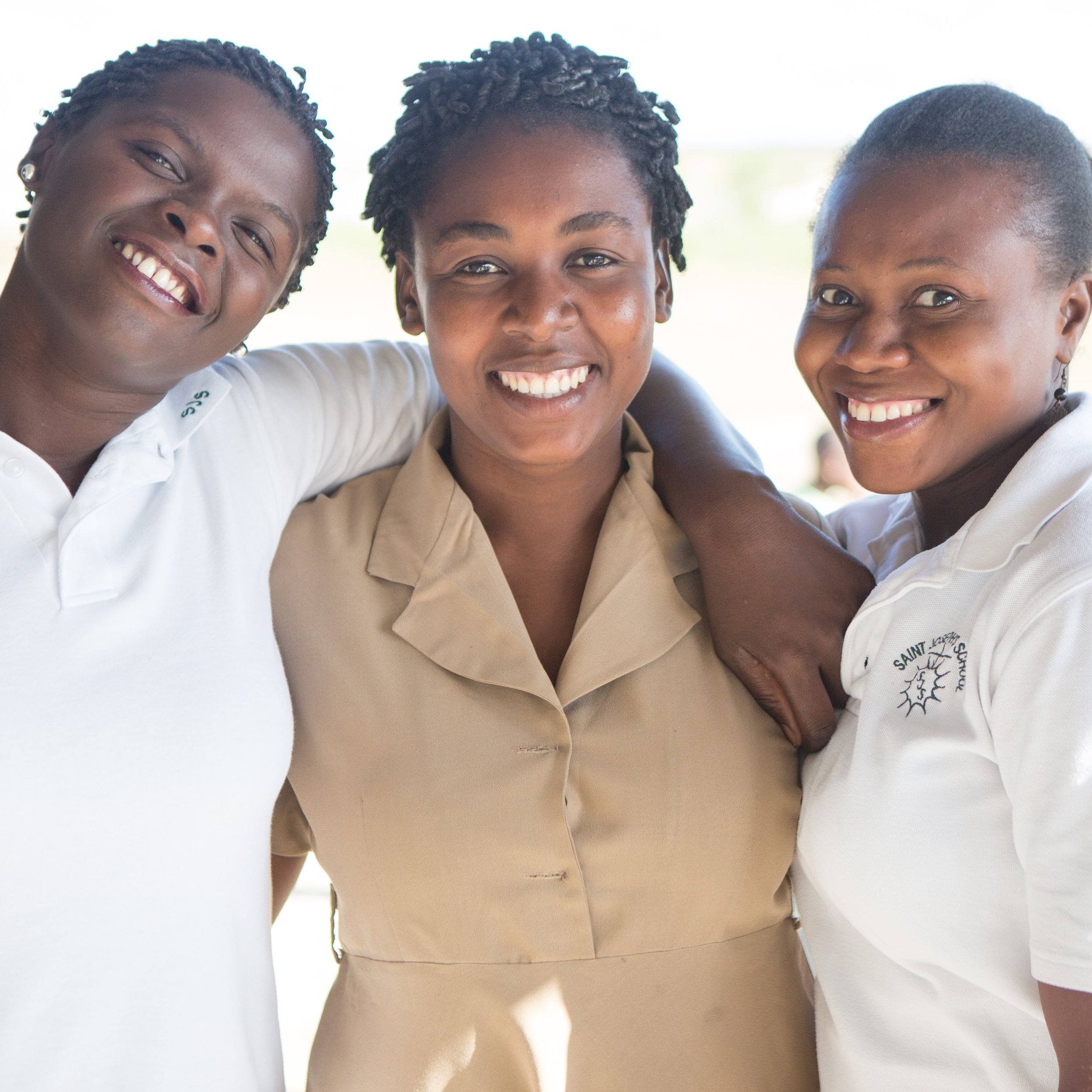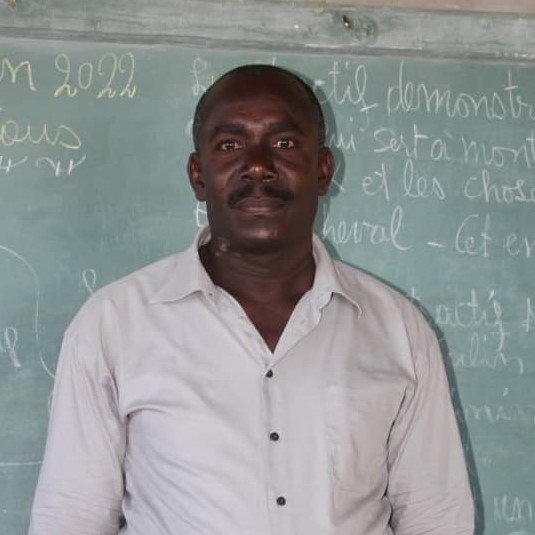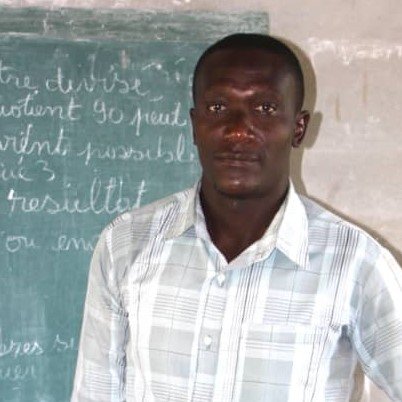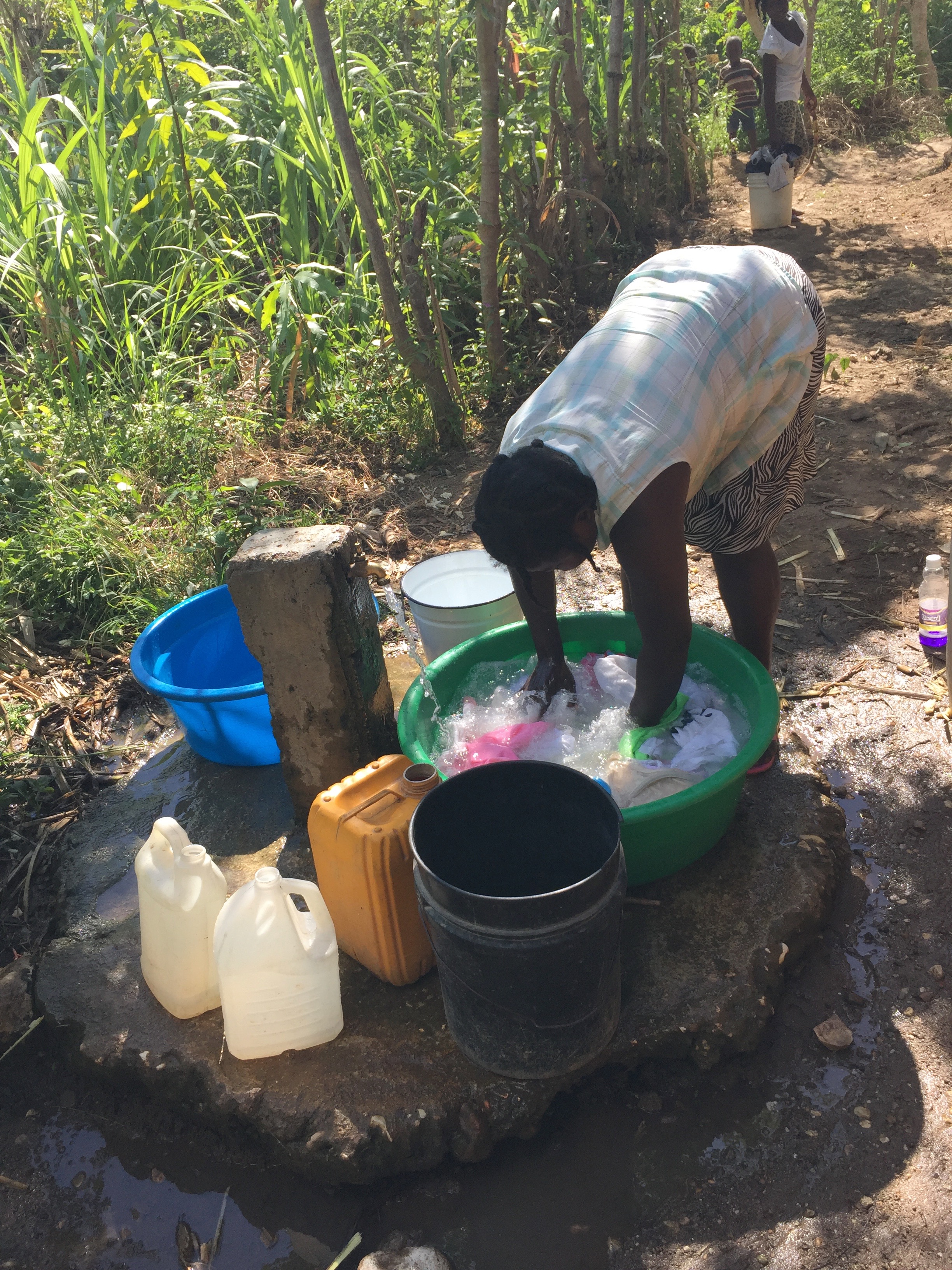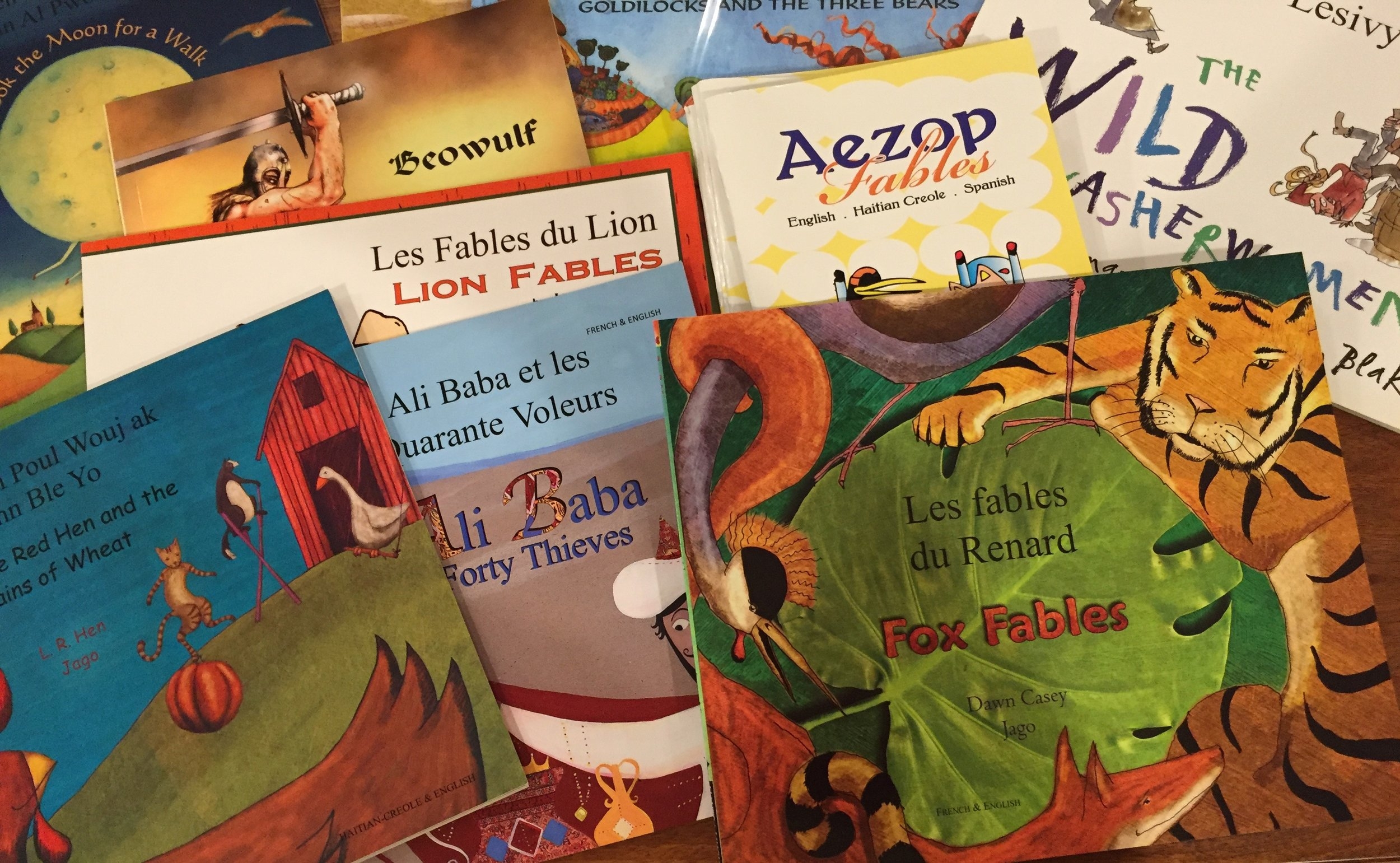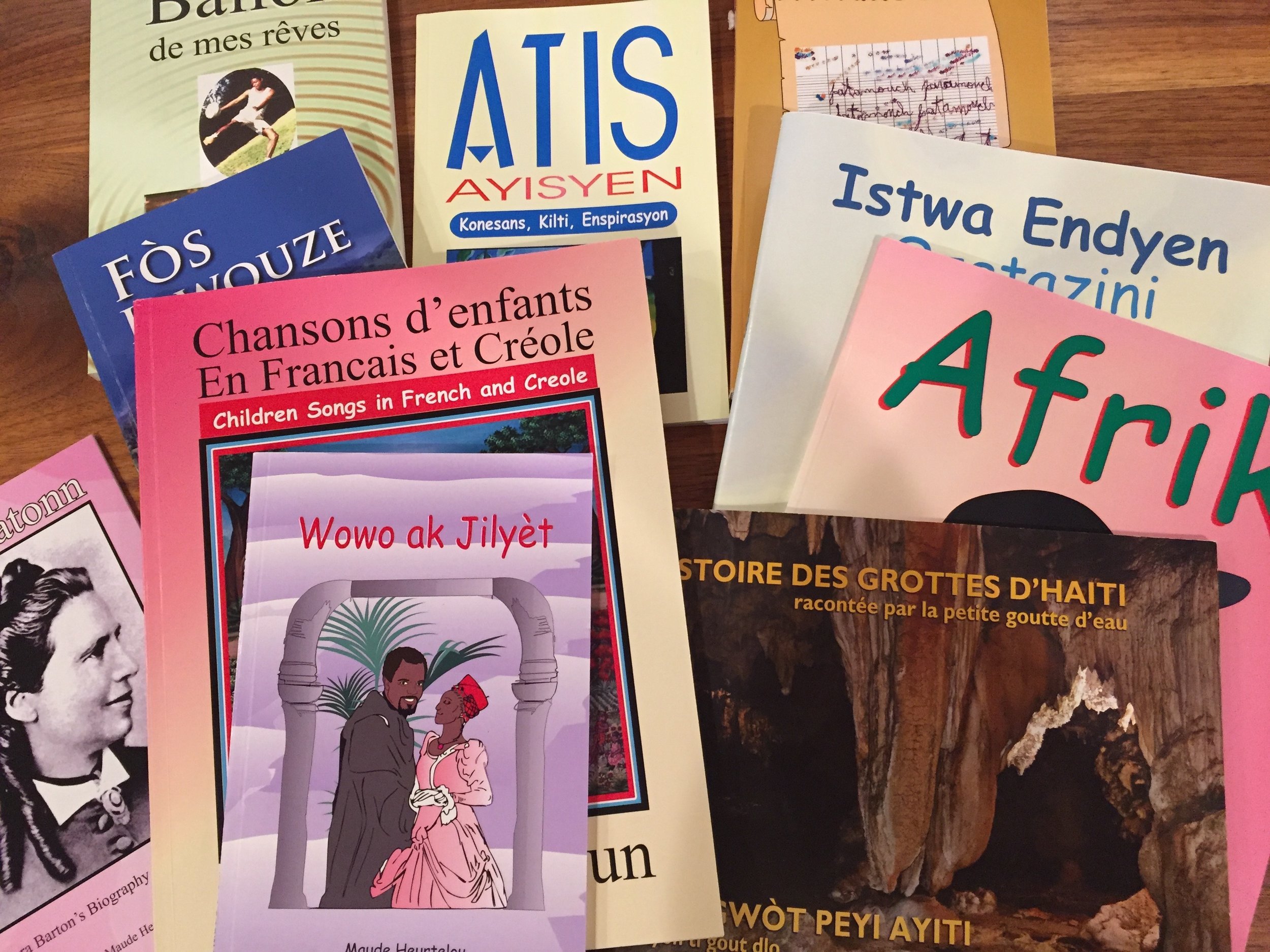Our teachers are our heroes—they persevere under great hardships to show up each day to teach our children. Recently our communication liaison Guerda met with the teachers who shared information about their lives and their experiences today in Haiti.
Our teachers travel to the school from various parts of Haiti but most live in the nearby city of Hinche. Some have motorcycles to ride the five miles to school, but many must hire a ride for their commute. Fuel is very expensive (about $12/gallon now) so transportation is a huge personal expense for them.
Our teachers struggle to make ends meet and provide for their families. Inflation is rampant. The Haitian gourd has fallen to 1/3 of its value since we opened the school in 2014. The teachers are very grateful to our Haiti EcoVillage Partnership that provides their salaries (most teachers in Haiti are not being paid anything!).
Our teachers agree their biggest concern is safety – for themselves and their families. Without a functioning government, the country is without law and order. Crime, including kidnapping for ransom, has spread from the cities into the rural areas. Our teachers and parents worry every day about the safety of the children attending the EcoVillage School.
Our teachers tell us some children have not been able to attend regularly due to poverty at home and fear for their safety. Because of the severe poverty, teaching materials are difficult to obtain and several of the teachers mentioned the lack of materials for the children as a top challenge to teaching.
Our teachers show up to teach. When asked what keeps them going, they all say: these children are the future of Haiti. If Haiti is to solve its problems, the next generation must be prepared. The children are the hope for Haiti. Hope keeps the teachers motivated, and it keeps us inspired as well.
See photos of the teachers and read more about them on our new teacher page at https://www.haitiecovillageschool.org/teachers
The school receives no government support to pay teachers. For this reason, your financial support to our mission keeps that hope alive.
We are now raising funds so that the school can remain open for the 2022-2023 school year.
Please continue to support our school through your donations using one of these options:
Option 1: Online via https://www.haitiecovillageschool.org/donate (PayPal) .
Option 2: Send a check to North Decatur Presbyterian Church, 611 Medlock Road, Decatur, Georgia 30033 designated for Haiti Mission.
Option 3: Make an eGift on the GSPC website at https://goodshepherdpc.org/give/ and designate your gift to 'Haiti Mission'
